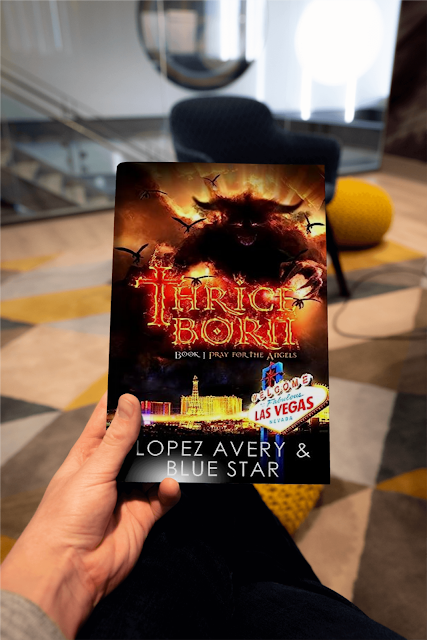Every writer dreams of a serene
and inspiring space where ideas flow effortlessly and creativity flourishes.
The writing environment plays a crucial role in shaping the quality and
quantity of your work. In this blog post, we will delve into the key elements
that make up the best writing environment for authors, helping you craft a
haven where your writing aspirations can take flight.
Choosing the Right Location
Imagine a quaint cottage tucked
away in the woods, surrounded by a canopy of towering trees. Rays of sunlight
gently filter through the leaves, casting a warm, dappled glow upon the wooden
floor. The distant chirping of birds and the soft rustling of leaves create a
soothing symphony that envelops you in a cocoon of tranquility. This idyllic
setting, far from the hustle and bustle of the world, is a writer's dream come
true - a sanctuary for creativity to flourish. Selecting the perfect location
for your writing sanctuary is paramount. Consider a quiet corner in your home,
a cozy coffee shop, or a peaceful park where you can immerse yourself in
nature. Ensure the space is free from distractions and noise, allowing you to
fully focus on your writing.
Organizing Your Writing Space
As you step into your writing
haven, you are met with a scene of uncluttered serenity. A beautifully crafted
writing desk stands at the heart of the room, its polished surface adorned only
with the tools of your trade - a sleek laptop, a stack of crisp notebooks, and
a collection of fine pens. Neatly arranged bookshelves line the walls,
showcasing literary treasures that have inspired generations of writers. The
minimalist setup creates an atmosphere of focus and allows your mind to delve
into the boundless realms of imagination.
A cluttered workspace can stifle
creativity and disrupt your flow. Keep your writing area organized and free
from unnecessary distractions. Invest in practical storage solutions for your
writing materials and create a neat, minimalist setup that fosters a sense of
calm and concentration.
Cultivating Comfort
Soft, plush cushions adorn your
ergonomic chair, providing lumbar support and inviting you to settle in for
hours of blissful writing. The room is gently illuminated by a mix of warm
floor lamps and fairy lights, casting a soft, golden glow that envelops you
like a cozy embrace. The air carries the faint scent of freshly brewed coffee,
the perfect companion to fuel your creative endeavors. This haven of comfort
and warmth ensures that your mind remains undistracted and fully immersed in
your writing.
It is essential for sustained
writing sessions. Invest in an ergonomic chair and a suitable writing desk to
prevent physical discomfort while you work. Add cozy touches like cushions and
soft lighting to create a warm and inviting ambiance.
Personalizing Your Space
The walls are adorned with a
gallery of inspiration - motivational quotes penned by your favorite authors
and vibrant artwork that speaks to your soul. A corkboard stands proudly,
adorned with snapshots of cherished memories, mementos from literary events,
and notes of encouragement from fellow writers. This personalized touch
breathes life into your writing sanctuary, making it a space uniquely yours and
an embodiment of your creative spirit.
Make your writing environment
truly yours by infusing it with personal touches. Hang motivational quotes,
display pictures that inspire you, or add artwork that sparks your creativity.
Personalizing your space will make it feel more like your creative sanctuary.
Harnessing Natural Light
Positioned near a wide window,
your writing desk basks in the embrace of natural light. The soft rays caress
your face as you gaze outside, where nature unfolds its ever-changing canvas.
The changing seasons paint the world with a myriad of colors, inspiring a
symphony of emotions within you. This infusion of natural light not only uplifts
your mood but also infuses your writing with a touch of magic and authenticity.
Natural light is a powerful ally
for writers. Position your writing space near a window to let in ample
sunlight. Natural light not only enhances your mood but also reduces eye
strain, making it easier to write for extended periods.
Eliminating Digital Distractions
In this oasis of creativity, the
only electronic device allowed is your trusty writing instrument - your laptop
or notebook. Social media notifications and the lure of the digital world are
banished during your writing hours, allowing you to fully immerse yourself in
your craft. This conscious decision liberates your mind, creating a cocoon of
focus where your words can flow unhindered.
While technology is an
indispensable tool for writers, it can also be a significant source of
distraction. Minimize digital interruptions by turning off social media
notifications and setting specific writing time without any electronic devices.
Incorporating Nature
As you look around, you notice the
gentle presence of nature woven seamlessly into your writing sanctuary. Lush
potted plants sit gracefully in corners, their verdant leaves providing a sense
of grounding and vitality. A small indoor water feature adds a soothing melody,
reminiscent of a babbling brook, invoking a sense of calm that harmonizes
perfectly with the creative process.
Connecting with nature can be a
wellspring of inspiration for writers. If possible, incorporate elements of
nature into your writing environment. Place potted plants, use natural
materials, or have a small indoor water feature to bring the calming influence
of nature to your space.
Creating a Writing Ritual
Each writing session begins with
a ritual that centers your mind and sets the stage for creativity. You brew a
cup of your favorite tea, its aroma enveloping the room like a warm hug. You
take a moment to meditate, clearing your mind of distractions and embracing the
vast expanse of imagination that awaits. The ritual becomes a sacred gateway to
the world of storytelling, an invitation to embark on a journey of words and
wonder.
Establish a writing ritual to
signal your mind that it's time to dive into the world of creativity. This
could involve brewing a cup of tea, listening to instrumental music, or
spending a few moments in meditation. A consistent ritual can act as a powerful
trigger for your creative mind.
Conclusion
Creating the best writing
environment for authors is about curating a space that nurtures creativity,
fosters focus and empowers you to bring your literary visions to life. Choose
a location that resonates with you, organize your space efficiently, and
personalize it with meaningful touches. Cultivate comfort, harness natural
light, eliminate digital distractions, and incorporate elements of nature to
create a serene and inspiring sanctuary for your writing journey.
Remember, the best writing
environment is unique to each writer, so take the time to experiment and
fine-tune your space until it becomes the perfect haven for your creative
spirit. Happy writing in your new creative sanctuary!






















